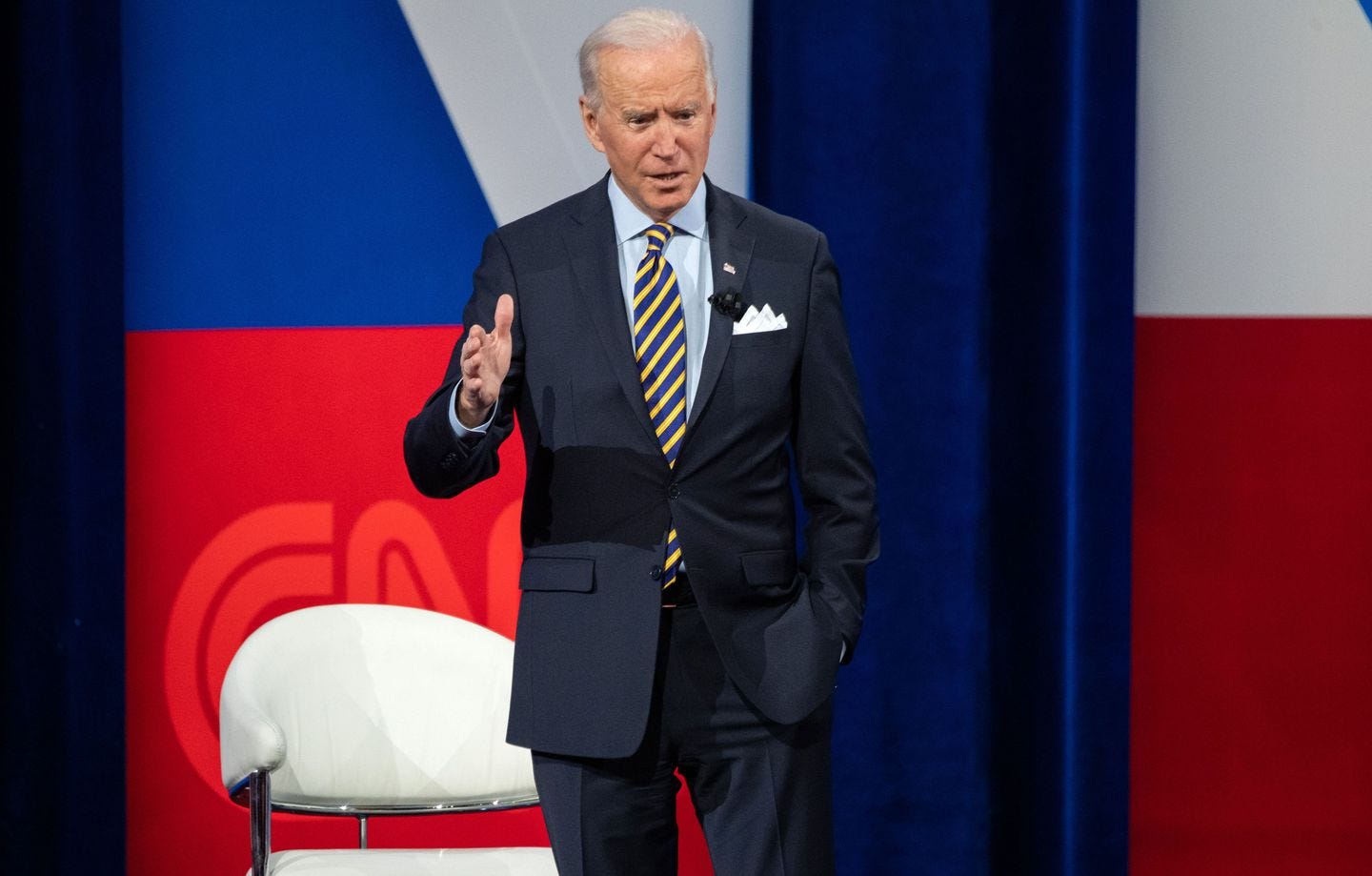Biden's worldview
Inclusive nationalism at home + pragmatic action in the world
U.S. President Joe Biden’s speech at the Munich Security Conference Friday offers yet another early indication of where he plans to take U.S. foreign policy over the next four years.
Don’t expect big surprises. Biden and his team already have telegraphed the broad contours of the foreign policy shifts he aims to make in speeches and interviews.
Additional clues will come from some of the work being done by more than two dozen new interagency working groups and task forces charged with producing at least 80 reports. With the era of foreign policy decision-making by Tweet over, the world will have to re-adjust to the old rhythms of an administration that actually deliberates national security questions in interagency processes.
America’s commentary industrial complex will overanalyze every utterance and policy move – as we see this week on Iran. Some foreign governments will wait by the phone for a call, and most will work hard to interpret every little gesture.
The more interesting thing to watch is the bigger story Biden continues to shape and tell. How Biden hones his argument for what America stands for and how that narrative will translate into action is important because most people don’t pay attention to the policy details.
Biden’s first town hall meeting as president on Tuesday night in Wisconsin focused on America’s problems at home, especially the pandemic and the economy. (Are you listening world? America has some serious problems at home.) The most noteworthy thing about the event was Biden’s tone and approach of decency and respect when responding to audience questions.
But it was the subject that most animated him in during the session that revealed the values driving his thinking. Biden became impassioned responding to a question about immigration policy and refugees – he raised his voice:
“Come with me into Sierra Leone. Come (with) me into parts of Lebanon. Come with me around the world and see people piled up in camps, kids dying, no way out, refugees fleeing from persecution. We, the United States, used to do our part. We were part of that. We're -- and that's -- send me your huddled masses. Come on!”
This was a direct appeal back to an idea of America as a beacon, rather than the gated community siege mentality that has dominated America’s mindset of late. Immigration policy experts looking for an action plan in what Biden said didn’t learn anything new Tuesday night. Instead, it was how he connected the topic to America’s role in the world that proved most interesting.
Biden moved from this view of America as a beacon to a contrast with America’s key competitors in the world. Biden said, “One of the reasons why we have been able to compete with the rest of the world so well is, most of our major competitors are xenophobic.” America’s competitive edge is who we are as a nation, but only if we stay true to who we are, Biden is arguing.
Fear, dislike, or prejudice against foreigners – that’s not what America stands for, Biden is saying. He then pivoted directly to China, saying “China is trying very hard to become the world leader and to get that moniker. And to be able to do that, they have to gain the confidence of other countries. And as long as they’re engaged in activity that is contrary to basic human rights, it’s going to be hard for them to do that.”
Those statements on their own don’t amount to a complete articulation of what America stands for – they reflect the themes Biden used in his campaign and in his inauguration speech: an inclusive nationalism that seeks to reconnect with the world through a pragmatic foreign policy informed by a set of liberal values.
This narrative stands in sharp contrast to that of his predecessor, who operated with a central frame of “soulless globalism” versus “America First” and a mindset that leaned towards “clash of civilizations” at times. One of Trump’s main themes was that foreigners are taking advantage of America and that he was building walls to keep some of them out and get others to pay more to the United States in tribute for commerce and defense.
Biden’s emerging narrative is offering something distinctive – it is not quite a return to the liberal internationalism of the post-Cold War, given Biden’s strong focus on building back America’s economy and avoiding the past mistakes of globalization. But it is also not a retreat from the world just to rebuild America at home in an exclusivist mindset framed from the left side of the ideological spectrum.
The narrative effort is important because voices on the right will continue to assemble their stories about the Biden administration, seeking to define it in unfavorable ways. Some will have a very different set of values and narratives in mind, whether it “conservative nationalism” to nascent efforts on cultural identity issues and a plutocratic form of economic nationalism.
After one of the most difficult years the country has ever faced, the Biden move to put ordinary policymaking back in place is an important step. But to build public support for the tasks needed to win the recovery at home and reconnect America with the world, Biden needs to continue to refine and sharpen his story about America’s purpose in the world. He’s off to a good start.



